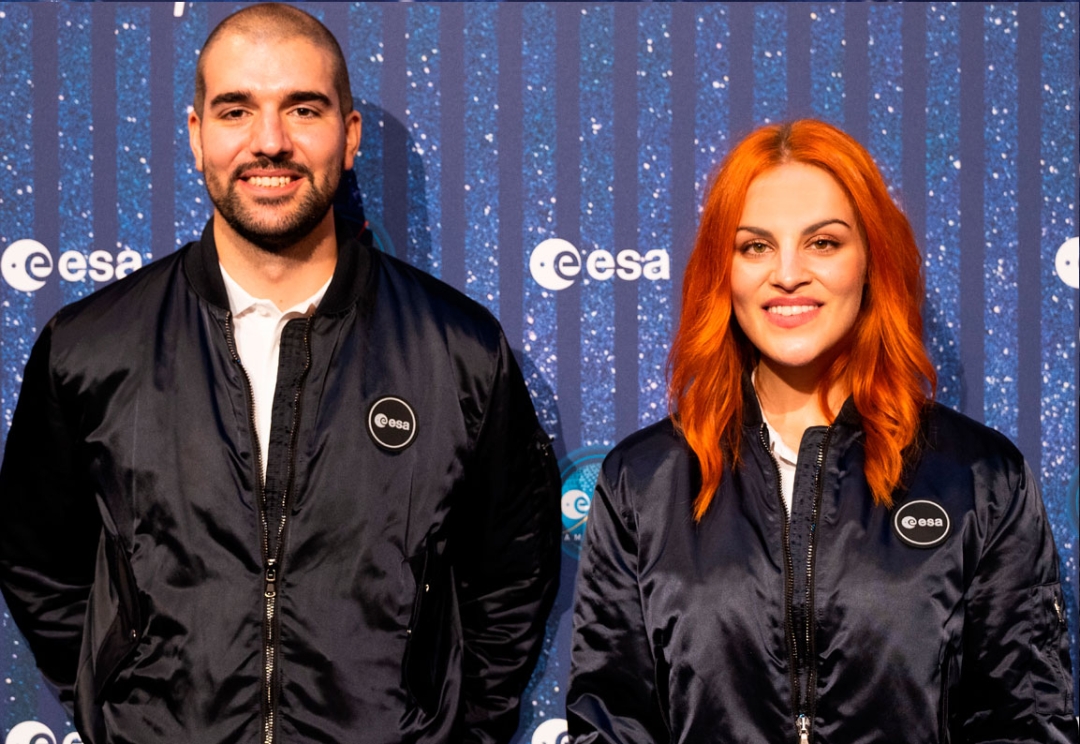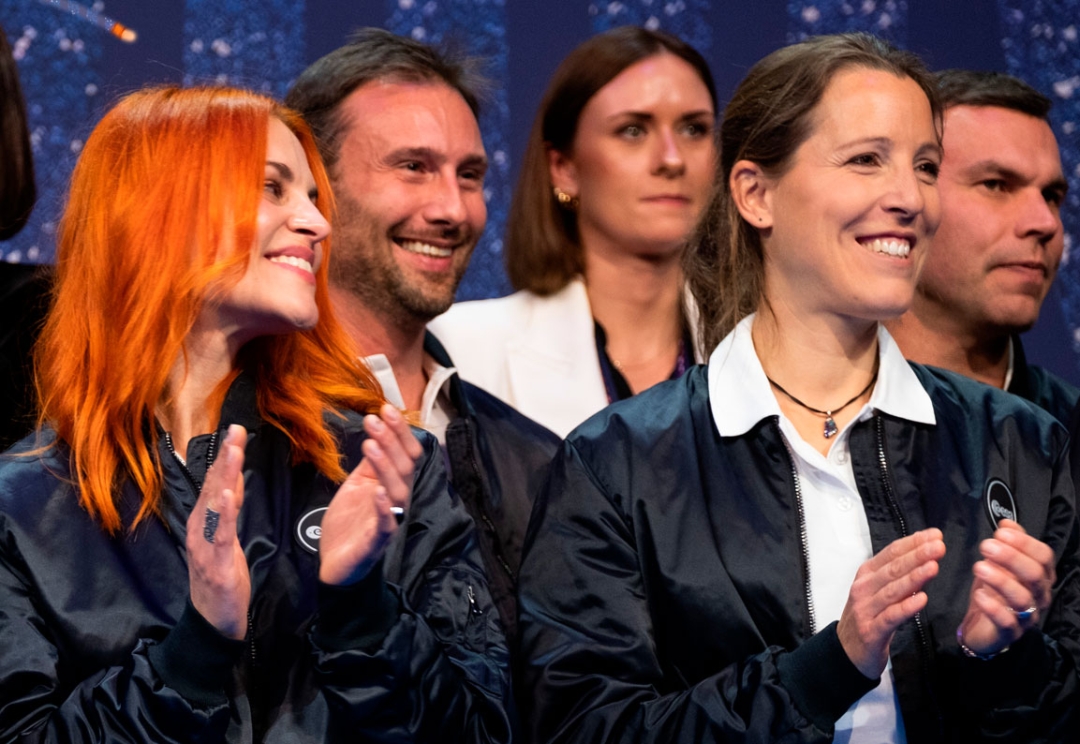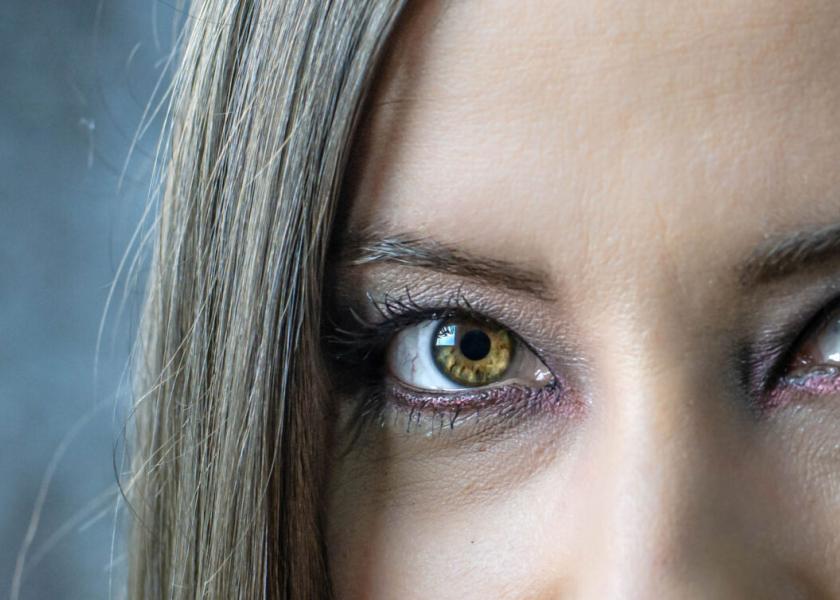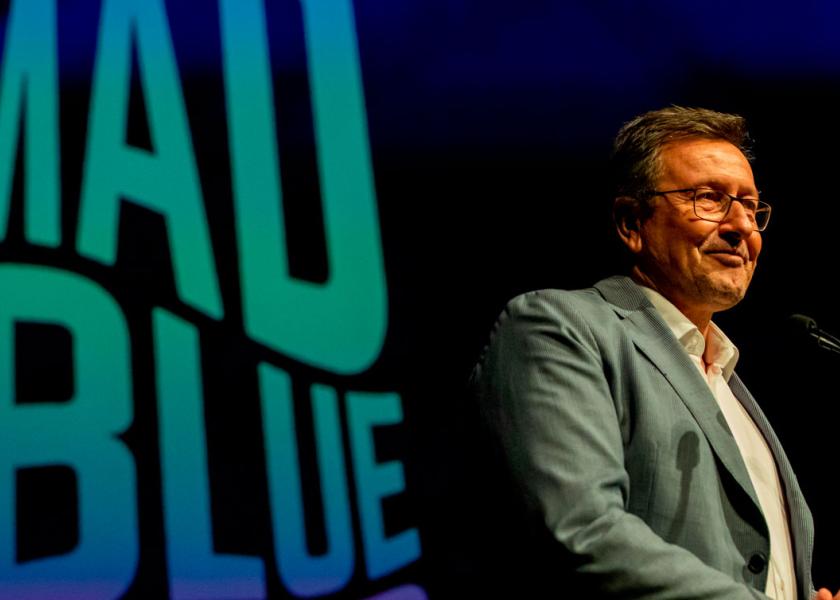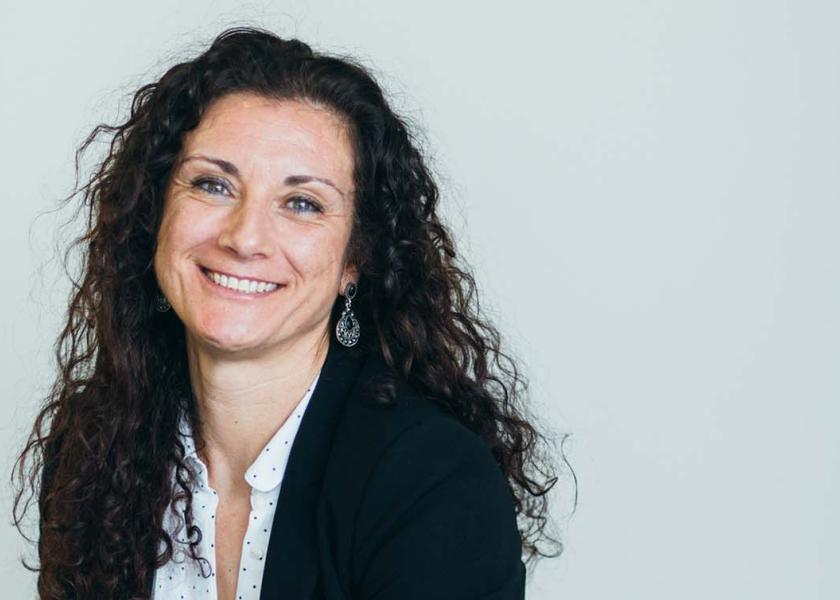Sara García
Talent that is out of this world
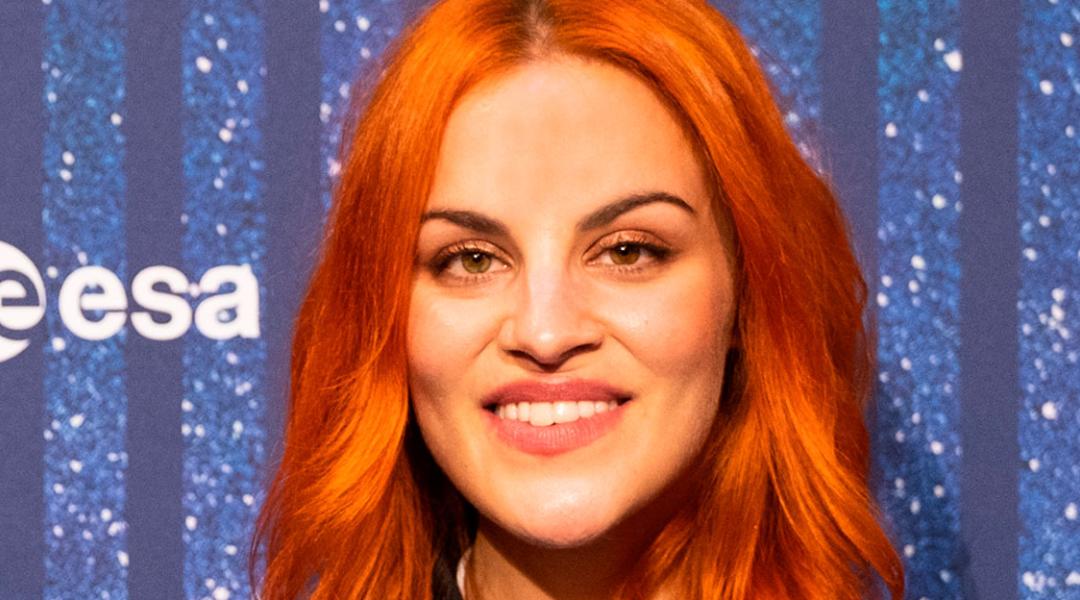
Biotechnologist Sara García became the first Spanish female member of the Astronaut Reserve of the European Space Agency (ESA) in November of 2022. Today, while she awaits training and being assigned to a potential mission, she’s devoted to a more worldly vocation, the fight against cancer as part of the Mariano Barbacid research team. At the 10th edition of the Mujeres a Seguir Awards, she will receive the MAS Talento a bordo Award.
With a degree in Biotechnology, a master’s in Biomedical and Biological Research and several awards and acknowledgements of her academic excellence, Sara García (León, 1989) was chosen by ESA to be a member of the Astronaut Reserve after passing more than 18 months of tests and exams alongside 23,000 candidates. When they confirmed her appointment, since it had to be kept secret until it was officially announced, it barely affected her routine. “I couldn’t believe it, my life was about to change, I was going to become an astronaut... But at the time, I thought: I can’t think about this now, because I need to go into work,” she shares smiling. So, Sara put on her white coat, went into the lab and carried on with her day-to-day tasks as if nothing had changed. A routine that will be slightly altered on 14 November, when she receives the MAS Talento a bordo Award at the 10th edition of the Mujeres a Seguir Awards. An award that recognises women capable of imagining new horizons and transcending their limits.
Being a member of the Astronaut Reserve means that she won’t be part of ESA's permanent staff, but she can be selected for specific space missions. So, while she waits for her training period to start and to potentially take part in a mission, she works at a different scale: the fight against cancer as part of the Mariano Barbacid research team, at the National Cancer Research Center (CNIO) in Madrid. Her goal? To discover new drugs that hit the bullseye in lung cancer development.
How did you become interested in a career in STEM (science, technology, engineering, and mathematics)? Were you inspired by someone at school or at home?
This is a question I’ve asked myself on several occasions, but the funny thing is that there were no scientists in my family, and I didn’t have an epiphany with any specific teachers or books. I attribute it more to innate curiosity; I wanted answers about the world. My parents did stimulate my curiosity with books about magnetism, electricity, biology, the solar system... I used to read a lot and tried to understand the world around me.
Why did you choose biotechnology and cancer research?
Because biotechnology is ‘colourful’, it can be applied to society in different ways, which use living organisms, or parts of them, to improve processes. I was interested in that. I work on ‘red’ biotechnology: I started being in contact with different labs at the Biomedical Institute in León. My specialisation in cancer research responded to that childhood motivation: I want to solve a problem so complex that it allows me to use the scientific method and my imagination and, at the same time, has a social impact and improves people’s lives.
“I want to solve a problem so complex that it allows me to use the scientific method and my imagination and, at the same time, has a social impact”
When you were little, did you also dream of being an astronaut?
Although any child can dream of exploring outer space, the truth is that it’s not something I ever seriously considered. The aerospace race is extremely difficult for Europeans, no matter how well prepared they are, because ESA has only ever put out four calls for applications in all the Agency’s history, unlike NASA in the United States, which puts out more frequent calls and job offers.
So, when your aunt sent you a message with the European call, did it feel like “now or never”?
When I saw the message for the ‘Job offer at the European Astronaut Corps of the European Space Agency’ I realised it was a once-in-a-lifetime opportunity that I couldn’t miss, because of how extraordinary and rare its calls are. First, I considered: “Do I meet the requirements? Yes. Can I pass the tests and exams? Let’s try.” But I also asked myself: “What will I have to do in the future if I’m chosen? What will I learn? Will I find it interesting?” Considering the pros and cons, when I realised everything that being an astronaut entails, it seemed like my dream job and that’s why I applied.
ESA’s call for applications took nearly 18 months, with more than 50 tests and 22,500 applicants. Which was the hardest part of the selection process?
Perhaps enduring the entire process in itself: the feelings that come up as you face the unknown. There’s no syllabus to prepare. You don’t even know how you’re going to be assessed. You have to be ready to face whatever they ask you to. Dealing with uncertainty and anxiety is tough. Keeping calm has been the hardest part. And, obviously, objectively, the cognitive and intelligence tests, because it’s not about being the best at something, but rather being coherent and consistent about everything.
Which talent did you use to pass all the tests and be chosen?
That I dare to do whatever’s thrown at me! (laughs). I usually put a lot of imagination and creativity into everything and always try to make everything I do count. From designing a scientific protocol with the latest technology to making the best Spanish omelette that I can. In fact, when I encounter a problem, whether at work or in life, my attitude is usually always: “There must be a solution to this. You’re not always going to find the perfect solution, but you can try.”
“These are once-in-a-lifetime opportunities that I couldn’t miss, because of how extraordinary and rare ESA’s calls are”
Where your personality or psychological profile also determining factors?
Without a doubt, I think that, apart from meeting certain technical or academic characteristics, what they were looking for at ESA was a specific psychological profile: people who can coexist in confined spaces, who are flexible, who can keep calm under pressure and be problem-solvers. When you start the mission-specific training, those potential complex situations aren’t just hypotheses, but rather simulations of everything you’d have to do and the problems that could crop up, to practice how to solve them. But feelings can’t be trained, they’re factory settings.
“When you start the mission-specific training, you do simulations of everything you’d have to do and the problems that could crop up. But feelings can’t be trained”
What is talent to you? How would you define it?
It depends a lot on the environment you move within, but the common ground between the talented people I’ve met is that they’re active listeners, they try to be the best version of themselves, from a humble point of view, they take on all opinions, defend their own path and allow themselves to change. When you grow as a person and control your thoughts, you end up becoming a talented person. Talent leads you to do whatever you do efficiently and productively, whether that’s sports, science, business management, photography... Whatever.
“When you grow as a person and control your thoughts, you end up becoming a talented person. Talent leads you to do whatever you do efficiently and productively”
Lastly, how did you feel when they told you you’d been chosen and how are you going to split your time with your job at CNIO?
I never believe too much in my chances. Despite being optimistic, I couldn’t really believe I could make it. As we progressed through the selection process our numbers dwindled: we went from being almost 23,000 to 50 applicants during the last phase. I was closer, but until I got the call from the general director, I didn’t believe it. And being on the Astronaut Reserve hasn’t been bittersweet or a relief, because one day I’d like to combine both my passions: biomedicine and space exploration. But it has given me time to continue doing what I do. I’m in charge of doctorate and master’s students, I want to see how they grow, defend their dissertations, and continue working to find specific drugs against cancer. A world of possibility opens up and that makes me happy.
